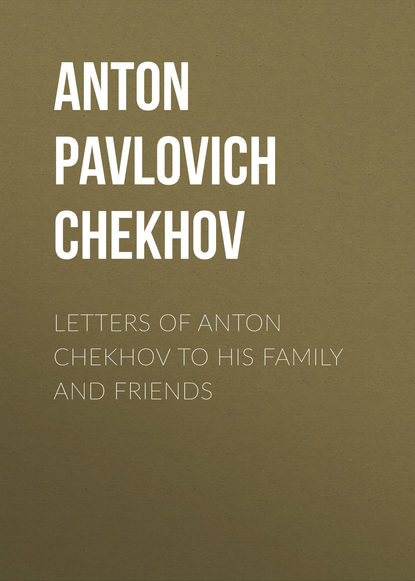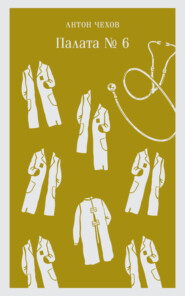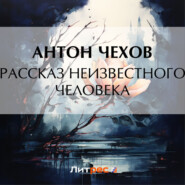По всем вопросам обращайтесь на: info@litportal.ru
(©) 2003-2024.
✖
Letters of Anton Chekhov to His Family and Friends
Настройки чтения
Размер шрифта
Высота строк
Поля
We shall probably not meet very soon, as I am going away in March and shall not return to the North before November. I shall not keep a flat in Moscow, as that pleasure is beyond my means. I shall stay in Petersburg.
I embrace you warmly. By the way, a little explanation in private. One day at dinner in Paris, persuading me to remain there, you offered to lend me money. I refused, and it seemed to me my refusal hurt and vexed you, and I fancied that when we parted there was a touch of coldness on your side. Possibly I am mistaken, but if I am right I assure you, my dear friend, on my word of honour, that I refused not because I did not care to be under an obligation to you, but simply from a feeling of self-preservation; I was behaving stupidly in Paris, and an extra thousand francs would only have been bad for my health. Believe me that if I had needed it, I would have asked you for a loan as readily as Suvorin.
God keep you.
TO V. A. TIHONOV
MOSCOW, February 22, 1892.
… You are mistaken in thinking you were drunk at Shtcheglov’s name-day party. You had had a drop, that was all. You danced when they all danced, and your jigitivka on the cabman’s box excited nothing but general delight. As for your criticism, it was most likely far from severe, as I don’t remember it. I only remember that Vvedensky and I for some reason roared with laughter as we listened to you.
Do you want my biography? Here it is. I was born in Taganrog in 1860. I finished the course at Taganrog high school in 1879. In 1884 I took my degree in medicine at the University of Moscow. In 1888 I gained the Pushkin prize. In 1890 I made a journey to Sahalin across Siberia and back by sea. In 1891 I made a tour in Europe, where I drank excellent wine and ate oysters. In 1892 I took part in an orgy in the company of V. A. Tihonov at a name-day party. I began writing in 1879. The published collections of my works are: “Motley Tales,” “In the Twilight,” “Stories,” “Surly People,” and a novel, “The Duel.” I have sinned in the dramatic line too, though with moderation. I have been translated into all the languages with the exception of the foreign ones, though I have indeed long ago been translated by the Germans. The Czechs and the Serbs approve of me also, and the French are not indifferent. The mysteries of love I fathomed at the age of thirteen. With my colleagues, doctors, and literary men alike, I am on the best of terms. I am a bachelor. I should like to receive a pension. I practice medicine, and so much so that sometimes in the summer I perform post-mortems, though I have not done so for two or three years. Of authors my favourite is Tolstoy, of doctors Zaharin.
All that is nonsense though. Write what you like. If you haven’t facts make up with lyricism.
TO A. S. KISELYOV
MELIHOVO, STATION LOPASNYA, MOSCOW-KURSK LINE. March 7, 1892.
This is our new address. And here are the details for you. If a peasant woman has no troubles she buys a pig. We have bought a pig, too, a big cumbersome estate, the owner of which would in Germany infallibly be made a herzog. Six hundred and thirty-nine acres in two parts with land not ours in between. Three hundred acres of young copse, which in twenty years will look like a wood, at present is a thicket of bushes. They call it “shaft wood,” but to my mind the name of “switch wood” would be more appropriate, since one could make nothing of it at present but switches. There is a fruit-garden, a park, big trees, long avenues of limes. The barns and sheds have been recently built, and have a fairly presentable appearance. The poultry house is made in accordance with the latest deductions of science, the well has an iron pump. The whole place is shut off from the world by a fence in the style of a palisade. The yard, the garden, the park, and the threshing-floor are shut off from each other in the same way. The house is good and bad. It’s more roomy than our Moscow flat, it’s light and warm, roofed with iron, and stands in a fine position, has a verandah into the garden, French windows, and so on, but it is bad in not being lofty, not sufficiently new, having outside a very stupid and naive appearance, and inside swarms with bugs and beetles which could only be got rid of by one means – a fire: nothing else would do for them.
There are flower-beds. In the garden fifteen paces from the house is a pond (thirty-five yards long, and thirty-five feet wide), with carp and tench in it, so that you can catch fish from the window. Beyond the yard there is another pond, which I have not yet seen. In the other part of the estate there is a river, probably a nasty one. Two miles away there is a broad river full of fish. We shall sow oats and clover. We have bought clover seed at ten roubles a pood, but we have no money left for oats. The estate has been bought for thirteen thousand. The legal formalities cost about seven hundred and fifty roubles, total fourteen thousand. The artist who sold it was paid four thousand down, and received a mortgage for five thousand at five per cent, for five years. The remaining four thousand the artist will receive from the Land Bank when in the spring I mortgage the estate to a bank. You see what a good arrangement. In two or three years I shall have five thousand, and shall pay off the mortgage, and shall be left with only the four thousand debt to the bank; but I have got to live those two of three years, hang it all! What matters is not the interest – that is small, not more than five hundred roubles a year – but that I shall be obliged all the time to think about quarter-days and all sorts of horrors attendant on being in debt. Moreover, your honour, as long as I am alive and earning four or five thousand a year, the debts will seem a trifle, and even a convenience, for to pay four hundred and seventy interest is much easier than to pay a thousand for a flat in Moscow; that is all true. But what if I depart from you sinners to another world – that is, give up the ghost? Then the ducal estate with the debts would seem to my parents in their green old age and to my sister such a burden that they would raise a wail to heaven.
I was completely cleaned out over the move.
Ah, if you could come and see us! In the first place it would be very delightful and interesting to see you; and in the second, your advice would save us from a thousand idiocies. You know we don’t understand a thing about it. Like Raspluev, all I know about agriculture is that the earth is black, and nothing more. Write. How is it best to sow clover? – among the rye, or among the spring wheat? …
TO I. L. SHTCHEGLOV
MELIHOVO, March 9, 1892.
… Yes, such men as Ratchinsky are very rare in this world. I understand your enthusiasm, my dear fellow. After the suffocation one feels in the proximity of A. and B. – and the world is full of them – Ratchinsky with his ideas, his humanity, and his purity, seems like a breath of spring. I am ready to lay down my life for Ratchinsky; but, dear friend, – allow me that “but” and don’t be vexed – I would not send my children to his school. Why? I received a religious education in my childhood – with church singing, with reading of the “apostles” and the psalms in church, with regular attendance at matins, with obligation to assist at the altar and ring the bells. And, do you know, when I think now of my childhood, it seems to me rather gloomy. I have no religion now. Do you know, when my brothers and I used to stand in the middle of the church and sing the trio “May my prayer be exalted,” or “The Archangel’s Voice,” everyone looked at us with emotion and envied our parents, but we at that moment felt like little convicts. Yes, dear boy! Ratchinsky I understand, but the children who are trained by him I don’t know. Their souls are dark for me. If there is joy in their souls, then they are happier than I and my brothers, whose childhood was suffering.
It is nice to be a lord. There is plenty of room, it’s warm, people are not continually pulling at the bell; and it is easy to descend from one’s lordship and serve as concierge or porter. My estate, sir, cost thirteen thousand, and I have only paid a third, the rest is a debt which will keep me long years on the chain.
Come and see me, Jean, together with Suvorin. Make a plan with him. I have such a garden! Such a naive courtyard, such geese! Write a little oftener.
TO A. S. SUVORIN
MELIHOVO, March 17, 1892.
… Ah, my dear fellow, if only you could take a holiday! Living in the country is inconvenient. The insufferable time of thaw and mud is beginning, but something marvellous and moving is taking place in nature, the poetry and novelty of which makes up for all the discomforts of life. Every day there are surprises, one better than another. The starlings have returned, everywhere there is the gurgling of water, in places where the snow has thawed the grass is already green. The day drags on like eternity. One lives as though in Australia, somewhere at the ends of the earth; one’s mood is calm, contemplative, and animal, in the sense that one does not regret yesterday or look forward to tomorrow. From here, far away, people seem very good, and that is natural, for in going away into the country we are not hiding from people but from our vanity, which in town among people is unjust and active beyond measure. Looking at the spring, I have a dreadful longing that there should be paradise in the other world. In fact, at moments I am so happy that I superstitiously pull myself up and remind myself of my creditors, who will one day drive me out of the Australia I have so happily won…
TO MADAME AVILOV
MELIHOVO, March 19, 1892.
HONOURED LIDYA ALEXYEVNA,
I have read your story “On the Road.” If I were the editor of an illustrated magazine, I should publish the story with great pleasure; but here is my advice as a reader: when you depict sad or unlucky people, and want to touch the reader’s heart, try to be colder – it gives their grief as it were a background, against which it stands out in greater relief. As it is, your heroes weep and you sigh. Yes, you must be cold.
But don’t listen to me, I am a bad critic. I have not the faculty of forming my critical ideas clearly. Sometimes I make a regular hash of it…
TO A. S. SUVORIN
MELIHOVO, March, 1892.
The cost of labour is almost nil, and so I am very well off. I begin to see the charms of capitalism. To pull down the stove in the servants’ quarters and build up there a kitchen stove with all its accessories, then to pull down the kitchen stove in the house arid put up a Dutch stove instead, costs twenty roubles altogether. The price of two men to dig, twenty-five kopecks. To fill the ice cellar it costs thirty kopecks a day to the workmen. A young labourer who does not drink or smoke, and can read and write, whose duties are to work the land and clean the boots and look after the flower-garden, costs five roubles a month. Floors, partitions, papering walls – all that is cheaper than mushrooms. And I am at ease. But if I were to pay for labour a quarter of what I get for my leisure I should be ruined in a month, as the number of stove-builders, carpenters, joiners, and so on, threatens to go for ever after the fashion of a recurring decimal. A spacious life not cramped within four walls requires a spacious pocket too. I have bored you already, but I must tell you one thing more: the clover seed costs one hundred roubles a pood, and the oats needed for seed cost more than a hundred. Think of that! They prophesy a harvest and wealth for me, but what is that to me! Better five kopecks in the present than a rouble in the future. I must sit and work. I must earn at least five hundred roubles for all these trifles. I have earned half already. And the snow is melting, it is warm, the birds are singing, the sky is bright and spring-like.
I am reading a mass of things. I have read Lyeskov’s “Legendary Characters,” religious and piquant – a combination of virtue, piety, and lewdness, but very interesting. Read it if you haven’t read it. I have read again Pisarev’s “Criticism of Pushkin.” Awfully naive. The man pulls Onyegin and Tatyana down from their pedestals, but Pushkin remains unhurt. Pisarev is the grandfather and father of all the critics of to-day, including Burenin – the same pettiness in disparagement, the same cold and conceited wit, and the same coarseness and indelicacy in their attitude to people. It is not Pisarev’s ideas that are brutalizing, for he has none, but his coarse tone. His attitude to Tatyana, especially to her charming letter, which I love tenderly, seems to me simply abominable. The critic has the foul aroma of an insolent captious procurator.
We have almost finished furnishing; only the shelves for my books are not done yet. When we take out the double windows we shall begin painting everything afresh, and then the house will have a very presentable appearance.
There are avenues of lime-trees, apple-trees, cherries, plums, and raspberries in the garden…
MELIHOVO,
April 6, 1892.
It is Easter. There is a church here, but no clergy. We collected eleven roubles from the whole parish and got a priest from the Davydov Monastery, who began celebrating the service on Friday. The church is very old and chilly, with lattice windows. We sang the Easter service – that is, my family and my visitors, young people. The effect was very good and harmonious, particularly the mass. The peasants were very much pleased, and they say they have never had such a grand service. Yesterday the sun shone all day, it was warm. In the morning I went into the fields, from which the snow has gone already, and spent half an hour in the happiest frame of mind: it was amazingly nice! The winter corn is green already, and there is grass in the copse.
You will not like Melihovo, at least at first. Here everything is in miniature; a little avenue of lime-trees, a pond the size of an aquarium, a little garden and park, little trees; but when you have walked about it once or twice the impression of littleness goes off. There is great feeling of space in spite of the village being so near. There is a great deal of forest around. There are numbers of starlings, and the starling has the right to say of itself: “I sing to my God all the days of my life.” It sings all day long without stopping…
MELIHOVO,
April 8, 1892.
If Shapiro were to present me with the gigantic photograph of which you write, I should not know what to do with it. A cumbersome present. You say that I used to be younger. Yes, imagine! Strange as it may seem, I have passed thirty some time ago, and I already feel forty close at hand. I have grown old not in body only, but in spirit. I have become stupidly indifferent to everything in the world, and for some reason or other the beginning of this indifference coincided with my tour abroad. I get up and go to bed feeling as though interest in life had dried up in me. This is either the illness called in the newspapers nervous exhaustion, or some working of the spirit not clear to the consciousness, which is called in novels a spiritual revulsion. If it is the latter it is all for the best, I suppose.
The artist Levitan is staying with me. Yesterday evening I went out with him shooting. He shot at a snipe; the bird, shot in the wing, fell into a pool. I picked it up: a long beak, big black eyes, and beautiful plumage. It looked at me with surprise. What was I to do with it? Levitan scowled, shut his eyes, and begged me, with a quiver in his voice: “My dear fellow, hit him on the head with the butt-end of your gun.” I said: “I can’t.” He went on nervously, shrugging his shoulders, twitching his head and begging me to; and the snipe went on looking at me in wonder. I had to obey Levitan and kill it. One beautiful creature in love the less, while two fools went home and sat down to supper.
Jean Shtcheglov, in whose company you were so bored for a whole evening, is a great opponent of every sort of heresy, and amongst others of feminine intellect; and yet if one compares him with K., for instance, beside her he seems like a foolish little monk. By the way, if you see K., give her my greetings, and tell her that we are expecting her here. She is very interesting in the open air and far more intelligent than in town…
TO MADAME AVILOV
MELIHOVO, April 29, 1892.
… Yes, it is nice now in the country, not only nice but positively amazing. It’s real spring, the trees are coming out, it is hot. The nightingales are singing, and the frogs are croaking in all sorts of tones. I haven’t a halfpenny, but the way I look at it is this: the rich man is not he who has plenty of money, but he who has the means to live now in the luxurious surroundings given us by early spring. Yesterday I was in Moscow, but I almost expired there of boredom and all manner of disasters. Would you believe it, a lady of my acquaintance, aged forty-two, recognized herself in the twenty-year-old heroine of my story, “The Grasshopper” and all Moscow is accusing me of libelling her. The chief proof is the external likeness. The lady paints, her husband is a doctor, and she is living with an artist.
I am finishing a story (“Ward No. 6”), a very dull one, owing to a complete absence of woman and the element of love. I can’t endure such stories. I write it as it were by accident, thoughtlessly.
Yes, I wrote to you once that you must be unconcerned when you write pathetic stories. And you did not understand me. You may weep and moan over your stories, you may suffer together with your heroes, but I consider one must do this so that the reader does not notice it. The more objective, the stronger will be the effect.
TO A. S. SUVORIN
MELIHOVO, May 15, 1892.
… I have got hold of the peasants and the shopkeepers here. One had a haemorrhage from the throat, another had his arm crushed by a tree, a third had his little daughter sick… It seems they would be in a desperate case without me. They bow respectfully to me as Germans do to their pastor, I am friends with them, and all goes well…

















